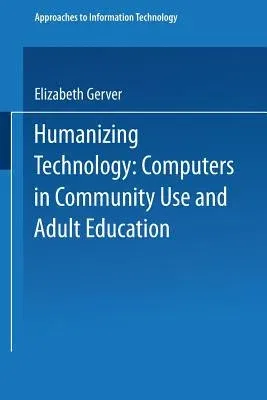Elizabeth Gerver
(Author)Humanizing Technology: Computers in Community Use and Adult Education (Softcover Reprint of the Original 1st 1986)Paperback - Softcover Reprint of the Original 1st 1986, 30 April 1986

Qty
1
Turbo
Ships in 2 - 3 days
In Stock
Free Delivery
Cash on Delivery
15 Days
Free Returns
Secure Checkout
Part of Series
Approaches to Information Technology
Print Length
202 pages
Language
English
Publisher
Springer
Date Published
30 Apr 1986
ISBN-10
0306421410
ISBN-13
9780306421419
Description
Product Details
Author:
Book Edition:
Softcover Reprint of the Original 1st 1986
Book Format:
Paperback
Country of Origin:
US
Date Published:
30 April 1986
Dimensions:
22.86 x
15.24 x
1.17 cm
ISBN-10:
0306421410
ISBN-13:
9780306421419
Language:
English
Location:
New York, NY
Pages:
202
Publisher:
Weight:
299.37 gm

